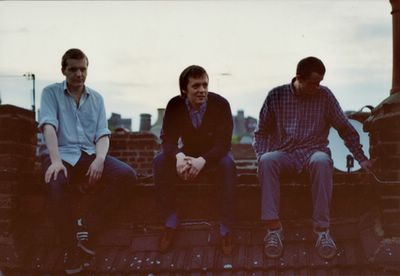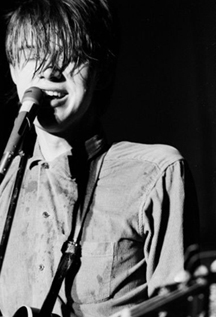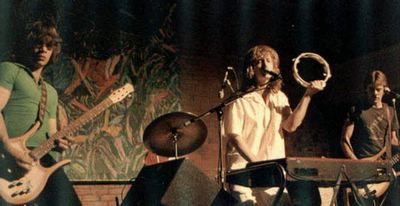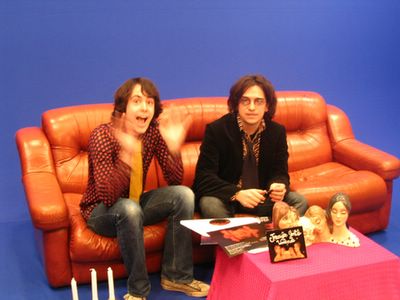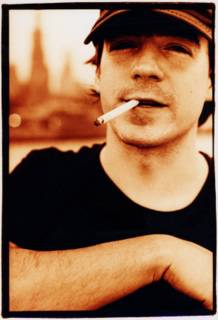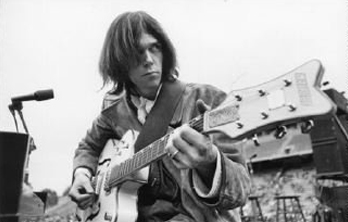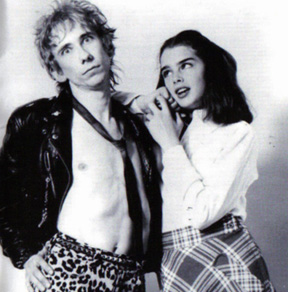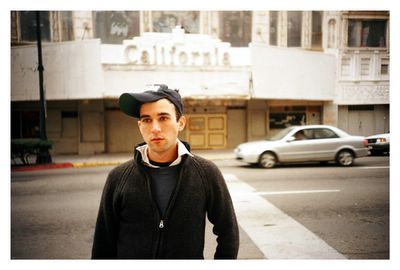POST NO. 17: LOTHAR AND THE HAND PEOPLE
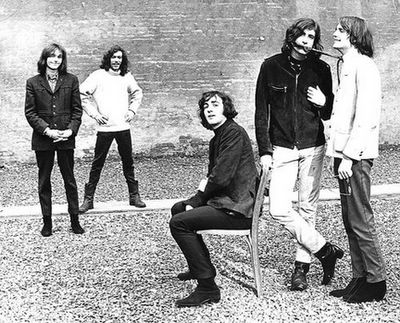
I recently enjoyed one of the best record hauls of my life at a friend's garage sale. He was unloading records for a friend, and had probably 800 or so in tow. Due to my own scheduling conflict with the sale's actual date, I got "first dibs" on the records, and walked away with a box of 50 under my arm. Several of the records were but a dollar, with the most expensive one coming in at $4. It was a diverse grab-bag too: from excellent and near-mint copies of Chad & Jeremy, Wayne Fontana and the Mindbenders, Sir Douglas Quintet and other '60s groups, to first-generation punk like Chelsea, The Dictators, and The Rezillos, to country classics like Gram Parsons, Guy Clark, Dolly Parton, and Webb Pierce, to oddball releases like Plus' The Seven Deadly Sins, Terry Riley's A Rainbow In Curved Air, and electronic music pioneer Morton Subotnick's Silver Apples of the Moon. I'm going to spend the remainder of the week -- starting with today -- looking at a few of my more striking finds that I've had time to digest.
Lothar and the Hand People were strange, to say the least. Based in New York (after forming in Denver), the quintet was a mediocre garage band who just happened to employ the services of a theremin, which they named Lothar. The theremin -- along with moog and non-traditional percussion -- gave the band a palette unlike their contemporaries. The fact that the band was signed to Capitol Records, for which they released a pair of records in 1968 and 1969, is just fucked up. (Look at the following picture, the cover to the record I picked up, and tell me if it looks like a major label release.)
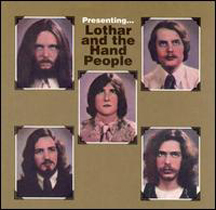
Their debut album, Presenting...Lothar and the Hand People, is an inconsistent, flawed affair, mostly because of the group's split-personality. Part of the time, they're a sort of primitive Devo-cum-Mothers of Invention, and the rest of the time they shoot for a more straightforward garage rock sound typical of the time's average bands. Still, they're fucking weird and quirky as well, which I suppose is why I find them so charming.
"Machines" sure does predict the 21st Century with ease, even if the idea of machines controlling our lives wasn't an original one. And their cover of "Bye Bye Love," which was turned into a household tune by The Everly Brothers, showcases their warped personality as they add a theremin melody over the top of the traditional cover. It's hardly remarkable as a great cover, but worth noting nonetheless if for no other reason than the odd choice of selecting such a non-hip tune to cover in 1968.
The group went on to release Space Hymn in 1969, whose title track was a hit. To my knowledge, I haven't heard the album or the song, but Julian Cope loves it so it can't be too bad. A web site was created to promote the re-release of Presenting by Razor & Tie. Check it out to read an article about the band from 2000.
